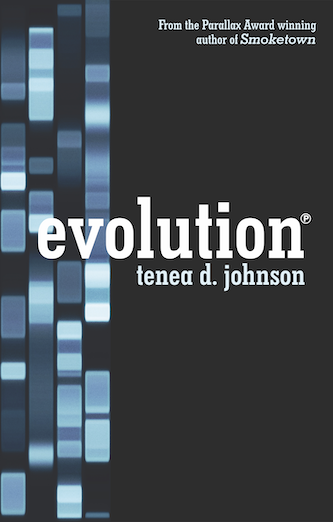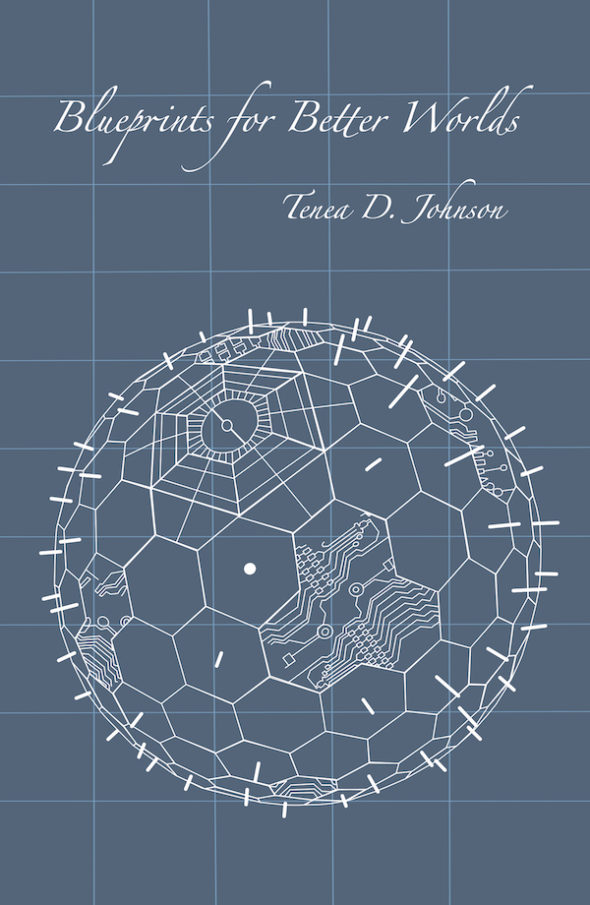3 Minutes with Karen, editor of New Worlds, Old Ways: Speculative Tales from the Caribbean
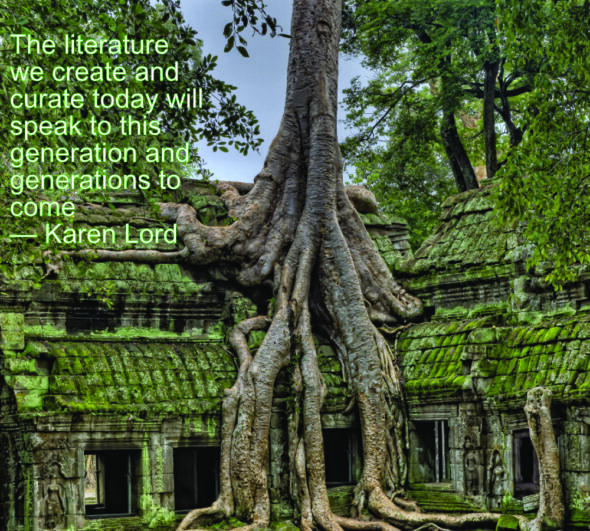
Original Photo by James Wheeler from Pexels
Award-winning author Karen Lord takes a turn as editor in New Worlds, Old Ways to lovely effect. She also closes out the 3 Minutes series for the Afrofuturism and the Black Fantastic storybundle which ends in just a couple of days (July 2nd).
Describe this work in 3 words.
Ancient, modern, futuristic.
Editors, what’s your general approach to choosing works for an anthology?
First I select for quality. Second, I select stories that contribute to an overarching narrative or theme.
The world is awash in terms right now: Afrofuturism, Africanfuturism, Black Speculative Fiction, the Black Fantastic, Astroblackness, etc. Do they matter? If so, do they do justice to the diaspora? If not, how might we as authors and editors lead a change? Feel free to offer any new terms you think would expand and/or deepen the concept.
Caribbean speculative fiction is the most accurate term for describing this anthology, as it contains works by writers of African, Indian and/or European heritage who participate in and identify with the culture of the Caribbean. That culture is a blend of cultures: Indigenous, African, European, Indian, Chinese and more.
What are you working on now?
I am collaborating with Tobias Buckell on an anthology of original stories/poems and reprints on the theme of Caribbean futures.
What compels you to keep writing/editing?
The literature we create and curate today will speak to this generation and the generations to come.
3 Minutes with J.S., Author of Queen of Zazzau
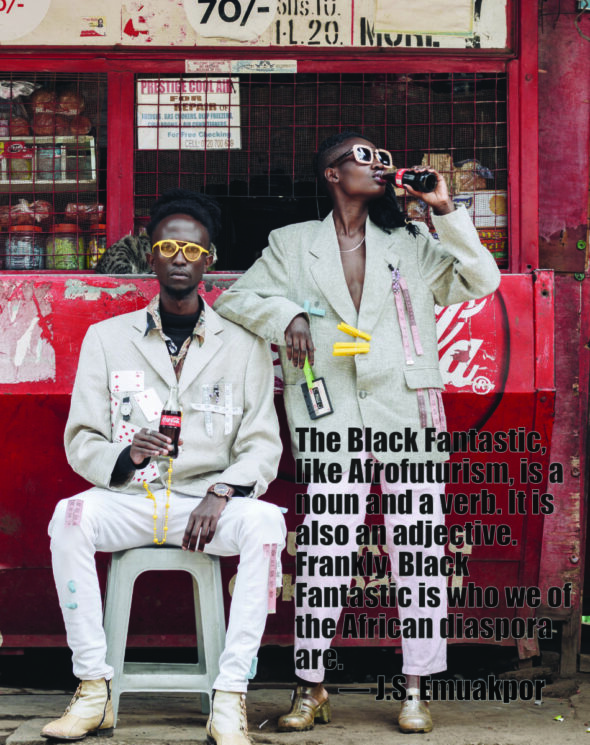
Original Photo By Breston Kenya from Pexels
Kicking off the final week the Afrofuturism and the Black Fantastic storybundle will be available, we have J. S. Emuakpor to share her views Afrofuturism and the Black Fantastic mean and could mean as well as more about her work.
Describe this work in 3 words.
African history reimagined.
How do you define Afrofuturism?
Afrofuturism is not so easy to define, because it is both a noun and a verb to me. It is a movement as well as a product. Afrofuturism is what lies ahead for the African diaspora. It’s our endpoint, our “Ultimate Form.” It is the African diaspora as seen through the lens of Speculative Fiction.
How do you define the Black Fantastic?
The Black Fantastic or Afrofuturism. Which came first? I think, in this case, the relationship is not linear. The Black Fantastic refers to the manner in which Blackness has shaped and reshaped popular culture across the world. It is so completely intertwined with Afrofuturism that the two concepts are often interchangeable. The Black Fantastic, like Afrofuturism, is a noun and a verb. It is also an adjective. Frankly, Black Fantastic is who we of the African diaspora are.
What was the most difficult story/part of your novel to write? Why?
The most difficult part of Queen of Zazzau to write was the god of war. When he and I started his journey, I could only see him through the eyes of my protagonist, and she hated him. He was cold and seemingly cruel. Until, one day, I looked into his heart and saw him for what he truly was. After that, I had to figure out a way to keep his edge without the reader hating him, because he wasn’t the awful person that I had believed him to be, and I didn’t want the readers to think that he was. Fine-tuning his interactions with the main character was difficult, but I think I succeeded.
What’s on your desk?
The real question is: what isn’t on my desk?
What direction would you like to see Afrofuturism and/or the Black Fantastic go? What would you like to see come of this moment of greater recognition?
I would like to see more mainstream speculative fiction written by and featuring the African diaspora. I would like to see the Afrofuturism/Black Fantastic movement spur real change in the way people of color are viewed by the world. I want the world to know that we are so much more than what *they* tell us we are. We are accomplished, we are brilliant, and we can slay orcs as well as any Tolkien hero.
What influences your work? People, other fields, other authors, events, histories?
Everything I come in contact with influences my work. But mostly, I am influenced by the Nigerian culture in which I was raised. Our myths, our fears, our superstitions. All of these things are present in my writing.
What are you working on now?
I am currently working a few projects. Two are in the same series as Queen of Zazzau and will feature African gods and monarchs. The one that has been getting most of my time in the past few weeks, however, is a world-hopping, steampunk, with a side of interracial romance. I thought it would be a straightforward story, but there’s a lot more world-building going on than I had anticipated.
3 Minutes with Nicole, editor of Slay: Stories of the Vampire Noire
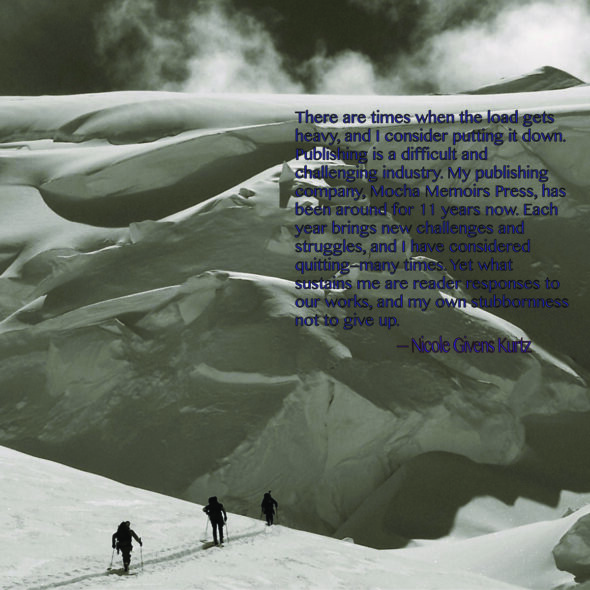
Original Photo from Pixabay/Pexels
Welcome the weekend with a closer look at Nicole Givens Kurtz, editor of Slay Vampire Noire and publisher of Mocha Memoirs Press. Below find a bit more about her and delve deeper into the work featured in the Afrofuturism and the Black Fantastic Storybundle available until July 2nd.
What’s your general approach to choosing works for an anthology?
My contribution to the Afrofuturism bundle is SLAY: Stories of the Vampire Noire.It is a collection of short stories that feature vampires or slayers from the African diaspora. My approach for choosing the works for this anthology involved seeking stories that had an emotional impact. Stories that lingered long after I had finished reading and stuck like peanut butter, their flavor continuing to permeate long after I’d ingested their content. Of course, I looked for clean drafts and well-rounded stories where the protagonist had agency and was from the diaspora, but the story’s impact mattered more to me with this anthology.
How do you define Afrofuturism?
I define Afrofuturism as creative art (music, art, writing, film) in which those of the African diaspora are depicted prominently in futuristic or alternate settings. An important aspect of Afrofuturism is in its ability to transcend one type of creative outlet. It’s in music, it’s in film, books, lifestyles. It’s a broad term, to be sure, but I think of it as an umbrella to which the other genres gather.
What compels you to keep writing/editing?
Readers and my own stubbornness keep me writing and editing. There are times when the load gets heavy, and I consider putting it down. Publishing is a difficult and challenging industry. My publishing company, Mocha Memoirs Press, has been around for 11 years now. Each year brings new challenges and struggles, and I have considered quitting–many times. Yet what sustains me are reader responses to our works, and my own stubbornness not to give up. I often feel the *break* I need and the press need are just around the corner, so I cannot stop–even when I have rounded many, many corners. LOL.
What are you working on now?
Currently I am working on a science fiction romance story. I just completed draft 0 of a horror novella that may or may not see the light of day. LOL. Mocha Memoirs Press continues to publish bold, fearless fiction. I encourage readers to sign up our newsletter and check out our blog for updated releases at mochamemoirspress.com.
3 Minutes with Zig Zag Claybourne, Author of The Brothers Jetstream: Leviathan and Afropuffs Are the Antennae of the Universe
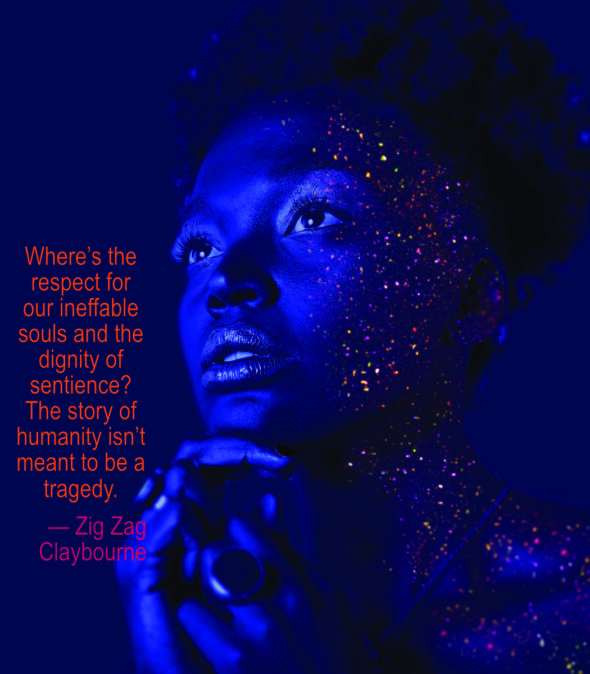
Photo by 3Motional Studio from Pexels
Zigs is bringin’ it. I’m gonna get out of the way. (If you want to hear more from this engaging mind and author of 2 books in the bundle, you can get the bundle until July 2nd).
Describe this work in 3 words.
“Oh, it’s on!” (3 more words: exciting, fun, real) (The Brothers Jetstream. For Afro Puffs, the 3 words would be “…and find out.”)
Have you witnessed the Black Fantastic or Afrofuturism in real life? If so, what was it?
Clearest recent example of Afrofuturism at work in my city, Detroit: to address the food deserts (lack of viable grocers) and the technology deserts (internet access—which should never have been commercialized in the first place–isn’t affordable for all, which places lots of Detroit students at a disadvantage) a group of Black community activists and tech activists came together and created free, secure wifi hubs in several of the most neglected areas of the city, along with donating computers. As for the food deserts, community gardens now dot the cityscape in the most beautiful of ways. These are two paths forward for those who faced brick walls. Afrofuturism is DIY. It’s attempting to find a harmonious way that might bring order to chaos.
What was the most difficult story/part of your novel to write? Why?
There’s a scene where a villain murders someone simply because they can. That sense of heartless impunity gutted me because way too much of our real world is exactly like that. People gone for no other reason than a person, a business, a community, a government—wanted them gone. Where’s the respect for our ineffable souls and the dignity of sentience? The story of humanity isn’t meant to be a tragedy.
What’s your favorite Afrofuturist or Black Fantastic work?
Parliament’s Mothership Connection. That entire album is a sci-fi novel spanning worlds, time, and dimensions!
Why this story?
This is the question that gets me bouncing like a hyped boxer. I’ve talked about it before (here for those interested) but short version: I personally wanted an epic tale about Black brothers constantly saving the world, one where they’re always doing it “one last damn time.” I looked for that epic tale. Something wild, something that poked fun at tropes but in a way that brought the reader along for the joke yet had heart. I couldn’t find one. So I squared my shoulders and wrote the ultimate adventure I wanted to read.
As for its sequel AFROPUFFS ARE THE ANTENNAE OF THE UNIVERSE: that was meant from day one to stomp male fragility. If I saw one more fanboi come for a sista (in particular, women in general) in genre…I was ready to act a fool. 2020 called for a story with an all-woman crew; an adventure where a shameless “Kirk” speech delivered by the captain of that crew felt right on time; a sci-fi story wherein idiocy got trounced like it owed everybody money.
Name one darling you killed before the final draft.
Fiona Carel. The crew in PUFFS are the women from The Brothers Jetstream: Leviathan. I wanted to bring Fiona Carel over from The Brothers Jetstream same as I did the crew. Fiona’s Irish, white, and sensitive to the multiverse. I wrote entire sections of her doing angsty multiverse stuff…but ultimately the story said nerp, not this time. As much as I love her character, she distracted from the Black Girl Magic this romp delivers.
What subject do you find most difficult to write about?
I’m not a fan of centering Black trauma, particularly in sci-fi/fantasy arenas. There’s this pernicious notion that pain is intrinsically and specifically tied to Black skin, be it on the Continent or via the diaspora, which tells me that regardless of the surrounding plot, the only story too many people want to hear from us is how we deal with the “pain” of being Black. Listen, I grew up listening to Earth Wind & Fire and Prince; I got the rhythms of the ancients in me! I can bring the thunder and lightning, but I play in the joyous rain.
What direction would you like to see Afrofuturism and/or the Black Fantastic go? What would you like to see come of this moment of greater recognition?
My hope is that readers realize Afrofuturism and the Black Fantastic (which damn well needs to be a band name) are more than solely entertainment to pass the time, they’re building blocks to actual social change far past the status quo. Whether comedy, adventure, fantasy, drama, romance–art is meant to connect us to something more than we started with.
How do you measure writing success?
First, by how much fun I had with the story. Second, by how satisfied I am with the story’s soul upon completion. Third, did readers feel like I honored their time? Anything after that is whipped cream on top of pie.
What’s your approach to worldbuilding?
I’m a fan of the less-is-more approach. As a writer and a reader, I like to wander a story’s playground to find interesting toys and attractions. If I’m reading your zombie sci fi novel I don’t want a page of exposition telling me about the planet’s atmosphere, the evil mining corporation that abandoned folks, and the marital backstories of the two main protagonists. I want “There weren’t enough of us left to bury the bodies…”
What’s the first Afrofuturist/Black Fantastic/Black Scifi work you read? What was the last?
Dhalgren by Samuel Delany was the first, a book which opened me to wonderful new ways to tell a story. The Space Between Worlds by Micaiah Johnson is the latest, a wonderful journey through the multiverse. Both books share an expansive sense of scope and character, which I love.
What are you working on now?
In March 2020 I had a short story published at GigaNotosaurus about a mother and daughter witch team from a secondary-world version of Africa traveling the world. It was called “The Air in My House Tastes Like Sugar”. The characters spoke to me so much I wanted to see what they did next. Result? A fantasy novel about this mother & young daughter having the adventure of their lives.
What compels you to keep writing/editing?
Questions. Not understanding things. Writing helps me see the world’s bones and tendons at work. I may leave this world not having figured a single thing out, but at least I can say I made the attempt.



